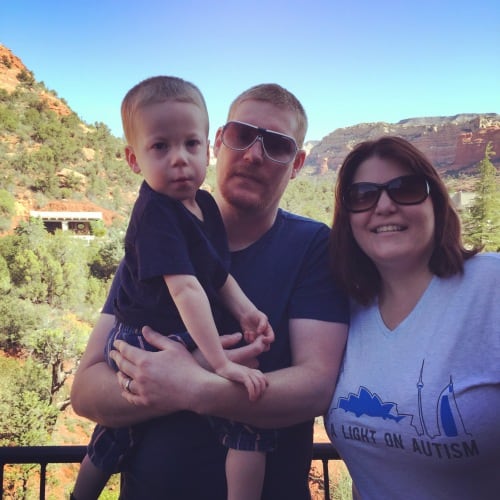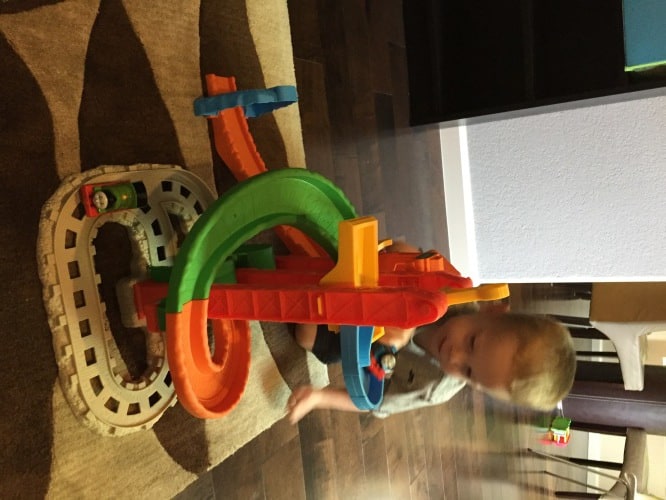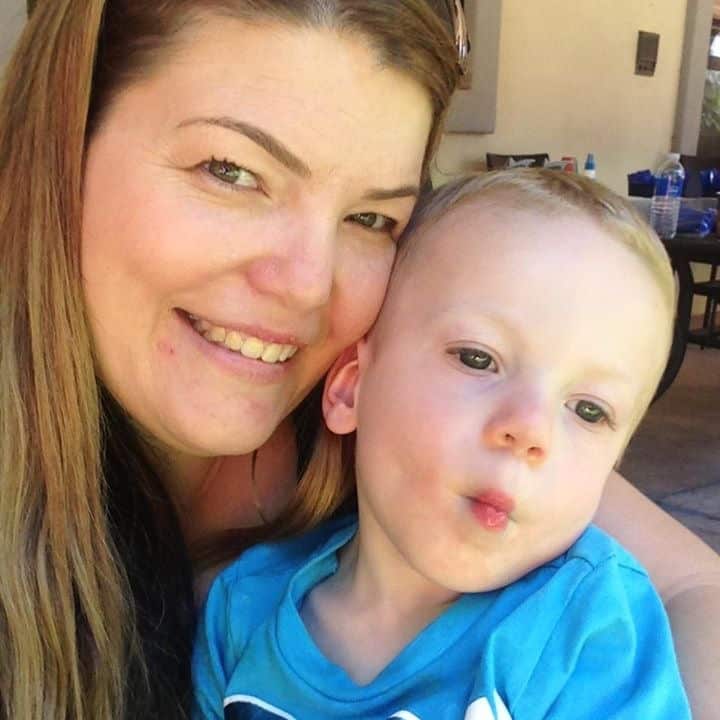Today is World Autism Awareness Day. We asked Rachel Lack about her son’s ASD diagnosis, misconceptions around autism, and her plan to make a documentary about his story.
SDTC: Why did you suspect that your son had autism?
RL: Henry was a typical baby, he hit all of his milestones on time. When he was 20 months we started to see regression in his speech. By 2 years he didn’t talk at all. That’s when we started early intervention, which included speech therapy. Loss of speech was the only sign we saw so we thought he just had a speech delay. Last June, when he was 2 ½, is when we really started to see autism signs. He stopped playing with other kids, he wasn’t using eye contact and he wasn’t responding to his name. He started to get obsessed with string, he could sit and play with string for hours. He wasn’t playing with toys anymore and he had no imaginary play. He would just move his toys from one room to the other. I started to see my boy disappear into his own little world.
When he was first diagnosed, how did you feel?
We knew what the doctor was going to say, but nothing prepares you for when you actually hear the words. I had to hold in my tears as the doctor was telling us he had Autism Spectrum Disorder. I was holding my baby, in shock. I’m not sure what she told us after that. On the way home I had to text my family and friends because if I talked to anyone I would have burst into tears. The next week was very hard for me. Every time I looked at my beautiful little boy all I could think was, are you going to be okay? Are you going to have friends again? Are the kids in your school going to bully you when you are older? Are you ever going to talk again? I felt guilty about having these questions in my head. My husband, Steve, was my rock. He handled all the phone calls, I could not talk about it. Friends and family sent emails and texts of support, which would make me cry again. I was an emotional mess the first couple of weeks. I soon realized my boy is still the same sweet, adorable little boy he’s always been and now he needs his mom to be strong and be his voice.

How do you feel now?
I feel much better now. I still have sad days when I see typical kids his age playing with each other while he is by himself. I want to walk over to those kids and say, don’t give up on him, he will get there one day. That’s what I want to say to everyone, don’t give up on him. He’s still not talking but he’s making huge improvements with so many new sounds everyday. I feel so proud of my little hero. He is making improvements with everything. Since starting Applied Behavior Analysis Therapy in December, he is using eye contact 30% of the time, he is responding to his name 40% of the time and he is starting to notice the kids in his class again. I couldn’t be happier and more optimistic that this is the right therapy for him.
What do you think is the biggest misconception about autism?
That is a great question. I think most people think they can tell when a child has autism. It’s called Autism Spectrum Disorder for a reason. There is a wide range of kids on the spectrum from very severe to high functioning. If you have met one child with autism you’ve met one child with autism. Every child acts differently, even when a family has more that one child on the spectrum.
You are in the process of trying to make a documentary about autism, what do you hope to achieve?
I’m hoping I can help parents of newly diagnosed kids and at the same time educate the general public on what it’s like to have a child with autism. There is so much information out there; different studies, different therapies and even medication and dietary supplements. It can be overwhelming to an emotional parent, who in most cases just gets shoved out to fend for themselves. While we were waiting for Henry to be diagnosed, I was looking up everything I could find on autism. I was surprised there weren’t more films on the process of getting a diagnosis. I would have loved to see other people going through what I was going through.
What has surprised you most about this disease?
Autism is a neurological disorder that effects communication and social abilities. I was pleasantly surprised that my original thinking that all kids with autism are unemotional was completely wrong. Henry is loving and snuggly, a lot of parents I talk to say the same about their kids.

Henry is 3 now. What are his favourite activities?
He loves trains. He loves to play with them, hold them, ride them and watch them on TV. He will sit and watch model trains on YouTube for as long as we let him. If he is really hyper and we want to calm him down, we just put trains on. He’s also a very active boy, he loves to run and climb on everything.
What is your favourite thing to do with him?
Anything that makes him happy, makes me happy too. I love to take him to our local park and ride the little train. The smile on his face is priceless. A train is the only thing he will wait for. He works so hard during the week, sometimes 7 hours of therapy a day. The weekends are our time to relax and just let him be a 3-year-old boy.
If people want to participate in your documentary, how can they get in touch?
I would love to hear as many stories as I can. We are starting to set up Skype interviews for the middle of April. If you want to be involved, you can contact me by email at rachel@purlingplace.com or info@purlingplace.com



 Follow Us On Instagram
Follow Us On Instagram
